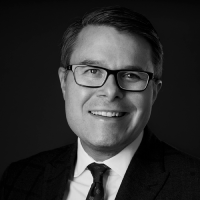
Date: November 21, 1-2 PM ET
Cost: $25 (Zoom Webinar)
*All registrants will be provided with a link to the recording and presentation slides following the session. The recording will be available for 60 days.
%20(1).png)
More than 6 months into the mandate of the Carney government there are conflicting signals about the kind of environmental policy agenda that the two-time central banker and global climate advisor who has championed transition finance - would actually lead.
But as the saying goes - show me how you spend your money and I’ll show you your values.
On the heels of the federal budget coming in early November, Tyler Meredith, one of Canada’s foremost fiscal policy experts and a key thought leader in the Liberal Party of Canada will help decode what all this means.
Topics this webinar will cover:
⁃ What we’ve learned about the Carney government so far in how it behaves
⁃ How this budget is different from what you’ve seen before and what it means for how a Carney government makes policy⁃ Where key environmental and climate policy files are headed over the next year
⁃ How the build agenda reconciles with these priorities and where there are threats and opportunities for different environmental groups
⁃ How to position next year’s budget ask now

Our Presenter

Tyler Meredith is Founding Partner, Meredith Boessenkool & Phillips Policy Advisors. Following seven intense years, ending as the lead economic policy advisor to Canada’s governing party, Tyler still firmly believes that public policy is about making life better for people.
Tyler helped deliver six federal budgets, held responsibility for tax and financial sector policy, including all financial sector transaction reviews from 2019-2022, and architected two winning federal campaign platforms. Helping oversee Canada’s economic response to COVID-19, Tyler witnessed firsthand how solid non-partisan policy saved jobs, businesses, and lives during one of the most critical times in Canadian history.
Tyler is also Fellow at University of Toronto’s Munk School of Global Affairs and Public Policy, and Fellow at the Maytree Foundation.

Session 1: Settler Colonialism 101
Introduce ENGO representatives to the fact that colonization is a structure and not an event. Identifies key ways that colonialism moves through individuals and organizations.
Session 2: Positionality
ENGO representatives learn how to articulate their social location within a settler colonial state, and in relation to potential Indigenous partners.
Session 3: Inherent Indigenous Governance 101
Introduce the fact that Indigenous nations have their own sources of political authority that they can (and do) draw on when addressing environmental issues. Examples provided.
Session 4: Building Better Relations
ENGO representatives will road test ways they can implement previous workshop key points to re-imagine partnerships with Indigenous nations.
Cost: $100 (or register 4 staff from the same organization for one stream and get the 5th registration free)
All registrants will be provided with a link to access the recordings and presentation slides for 60 days following each session.

Session 1: Diagnosing Settler Colonialism in the Enviro Sector
Participants will be asked to share ways in which they have diagnosed and traced power in social justice movements and/or in the ENGO sector. This workshop will make space for discomfort as part of promoting decolonization.
Session 2: Inherent Indigenous Governance
A mix of advanced and introductory theory, this workshop delves into legal and political pluralism, naming the fact that Indigenous nations have their own sources of political authority that they can (and do) draw on when addressing environmental issues.
Session 3: The Nonprofit Industrial Complex
ENGO participants are introduced to theories and examples describing the Nonprofit Industrial Complex and the “Shadow State.” Purpose is to show how settler colonialism structures civil society.
Session 4: Decolonizing ENGO-First Nation Partnerships
This workshop delves deep into how ENGOs can partner with Indigenous nations beyond the Nonprofit Industrial Complex while promoting deference to inherent Indigenous political leaders.
Cost: $100 (or register 4 staff from the same organization for one stream and get the 5th registration free)
All registrants will be provided with a link to access the recordings and presentation slides for 60 days following each session.

The Indigenous only space will be collaborative in nature but critical in approach. This track is a space for Indigenous folks within the ENGO sector to come together to discuss their experiences and work, with an eye to taking a position on what the sector might need to do in order to promote decolonization. Participants will use the first session to define our goals for the remaining three meetings. Therefore, session topics named here are proposals only.
Session 1: Naming the Cannibal: Settler Colonialism in the ENGO Sector
Session 2: Proposed topic: Reflections on working in the ENGO Sector
Session 3: Proposed topic: Centering Indigenous Thought in the ENGO Sector
Session 4: Proposed topic: Visioning a Decolonial Environmental Sector
Cost: Free
